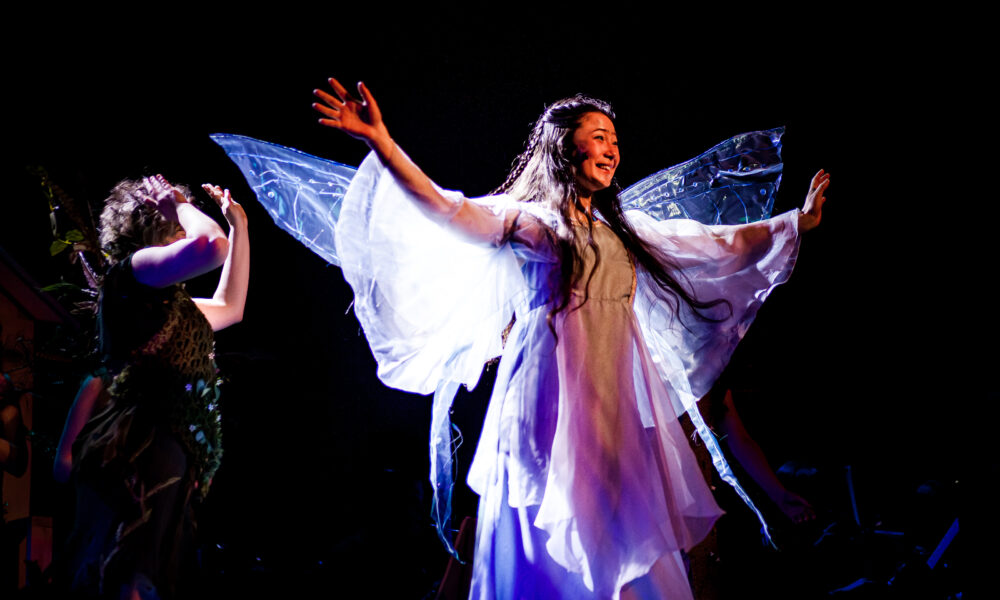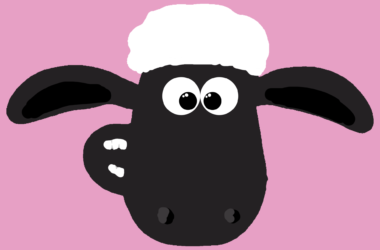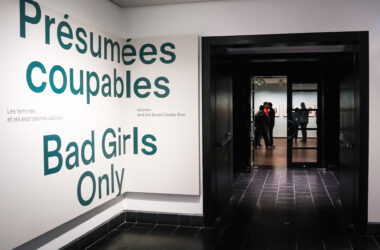From Feb. 14-22, the McGill Savoy Society brought Gilbert and Sullivan’s 1882 comic opera, Iolanthe, to life at Theatre Plaza. The show follows young shepherd Strephon (Matthew Erskine, BA 2022), and his beloved Phyllis (Aniela Stanek, U0 Arts). After he joyfully announces their engagement, a few wrinkles become apparent: She is a ward of the state, and he is just a lowly shepherd (even if he is secretly a fairy). When the engagement is rejected by parliament, he does what any half-fey suitor would do, and calls in his mother’s company of fairies. The company—that apparently is the collective noun for fairies—in turn does what any company of fairies would do, and infiltrates the British House of Peers.
“What makes Iolanthe special is its magic,” Erskine told The Tribune. “It’s a show about fairies, half-fairy, half-mortal shepherds, and sneering peers. It’s just imbued with such magic and wonders.”
The story unravels from there, by turns tragic and comic, chronicling the rising and falling fortunes of our star-crossed lovers.
“Iolanthe is a really amazing operetta because it threads that line between a really great comedy and also some dark and tragic bits that you don’t see in a lot of comic operas,” Michael Quinsey, BA 2022 and Stage Director of the production, commented. “You have some nice dark music that’s a lot of fun to work with, and on top of that, there’s some huge energetic ensembles that are just so much fun to put together on stage.”
Unfortunately for Strephon, while he is scheming how to gain permission for the engagement, Phyllis spots him with his fairy mother—who looks much younger than she really is—and assumes that he is flirting with her.
“She’s a girl’s girl. I feel like she’s very in love with both herself and Strephon,” Stanek said about her character. “She’s in her own little world, […] but by the end of the show, she’s become a lot more accepting of other people.”
A particularly energetic turning point comes towards the end of the first act, as Strephon is inducted into the House of Peers, as part of the fairies’ master plan. In an eerily current turn of events, our hero is suddenly vested with complete control to both make and approve laws. But fear not! Rather than slashing foreign aid budgets, he directs his unbridled executive power towards the noble aims of more lenient sentencing for criminals and support for the poor.
Unfortunately, even the satisfaction of a well-implemented social welfare policy is not enough to fill the woman-sized hole in Strephon’s heart, and he pines after Phyllis hopelessly.
As it turns out, Strephon is not the only one pining away—the Lord Chancellor (Samuel Valentim-Gervais) also has eyes for Phyllis. When she rejects him (and all of her other suitors, for that matter), the Chancellor spirals into despair, delivering a truly impressive patter song on a timeless theme: Bedrot. Reassuringly, it seems that even the Victorians couldn’t get out of bed, as he bemoans his unrequited love with his faithful teddy bear.
The second act culminates with an aria from Strephon’s fairy mother, Iolanthe, strikingly moving after the comedic first act, in which she sacrifices her own life in a selfless plea for her son’s marriage rights. Luckily for the characters, her tragic sacrifice is brief, and the Fairy Queen (Ashley Bissonnette) collaborates with the House of Peers to revise all necessary rules in order to save Iolanthe’s life, approve the marriage between Strephon and Phyllis, and pair up all the rest of the fairies with parliamentarian partners.
With all of the conflicts simultaneously resolved by the Fairy Queen, whose bouncy incompetence is a perfect equal and opposite to the pomp and circumstance of the Lords, they all dance off stage in a fittingly whimsical finale for a thoroughly whimsical production.
Iolanthe was onstage at Theatre Plaza from Feb. 14-22.









